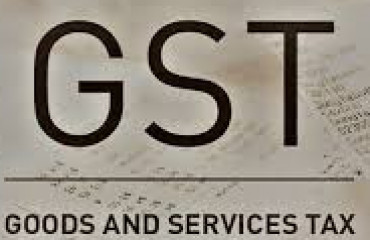
GOVERNMENT OF INDIA MINISTRY OF FINANCE DEPARTMENT OF REVENUE LOK SABHA STARRED QUESTION NO. *111 TO BE ANSWERED ON MONDAY JULY 25TH 2022
GOVERNMENT OF INDIA
MINISTRY OF FINANCE
DEPARTMENT OF REVENUE
*****
LOK SABHA
STARRED QUESTION NO. *111
TO BE ANSWERED ON MONDAY JULY 25TH 2022
GST ON MILK AND MILK PRODUCTS
*111. ADV. DEAN KURIAKOSE
Will the Minister of Finance be pleased to state:
(a) the details of Goods and Services Tax (GST) rates levied on milk and milk products for domestic consumption, State-wise;
(b) whether the Government has any plans to reduce or eliminate GST on milk and milk products, considering their value in ensuring nutritional security;
(c) if so, the details thereof and if not, the reasons therefor;
(d) whether the Government is likely to introduce a comprehensive financial package to help the dairy farmers; and
(e) if so, the details thereof and if not, the reasons therefor?
ANSWER
MINISTER OF FINANCE
SHRIMATI NIRMALA SITHARAMAN
(a) to (e): A statement is placed on the Table of the House.
*****
STATEMENT REFERRED TO IN REPLY TO THE LOK SABHA STARRED QUESTION NO. 111 RAISED BY ADV. DEAN KURIAKOSE FOR 25TH JULY, 2022, ON GST ON MILK AND MILK PRODUCTS
(a) Fresh milk and pasteurised milk are fully exempt from GST. Further, milk products like curd, lassi, butter milk and paneer are also exempt from GST if sold in form other than those pre-packaged and labelled. A nominal GST of 5% applies to curd, lassi, butter milk and paneer, when sold in pre-packaged and labelled form, and Ultra High Temperature (UHT) Further, a GST of 12% applies to condensed milk, butter, ghee and cheese. GST exemptions and rates apply uniformly across states.
(b) and (c) GST rates are prescribed on the recommendation of the GST Council, which is a constitutional body comprising of representatives from both the Centre and the States/UTs. (d) and (e) The Department of Animal Husbandry & Dairying, Government of India, has been implementing different schemes/fund, wherein inter alia provision(s) have been made for providing financial assistance to dairy cooperatives, milk producer companies, etc., primarily for creating or strengthening of the infrastructure for production of quality milk, procurement, processing and marketing of milk & milk products; and providing soft working capital loans. The same are elaborated below:
(i) National Programme for Dairy Development (NPDD): NPDD scheme is being implemented across the country since Feb-2014 with an objective of creating/strengthening of infrastructure for production of quality milk, procurement, processing and marketing of milk & milk products by dairy cooperatives, milk producer companies across the country. The scheme has been restructured/ realigned in July 2021 for implementation during 2021-22 to 2025-26.
(ii) Dairy Processing and Infrastructure Development Fund (DIDF): DIDF was launched in December 2017 with the objective of creation/ strengthening of Milk Processing, Value addition & chilling facilities for Dairy Co-operative, Multi State Dairy Cooperatives, Milk Producer Companies (MPC), National Dairy Development %oaDd s'IV6'6'%1″'sXLIid aries, Self Help Groups (SHGs) and Farmer Producer Organizations (FPOs) registered under State Cooperative and Companies Act with total outlay of Rs. 11,184 Crore (loan component of Rs. 8,004 Crore). DIDF is to be implemented from 2018-19 to 2022-23 and repayment period up to 2030-31 with spill over to first quarter of the FY 2031-32.
(iii) Supporting Dairy Cooperatives and Farmer Producer Organizations engaged in dairy activities (SDCFPO): The central sector scheme Supporting Dairy Cooperatives and Farmer Producer Organizations engaged in dairy activities (SDCFPO) is implemented as a part of umbrella Scheme "Infrastructure Development Fund"from 2021-22 to 2025-26 with an outlay of Rs 500 Cr. The scheme is being implemented through National Dairy Development Board (NDDB). Main objective of the scheme is to assist the cooperative societies and farmer producer organizations engaged in dairy activities by providing soft working capital loan to tide over the crisis on account of severely adverse market conditions or natural calamities.
